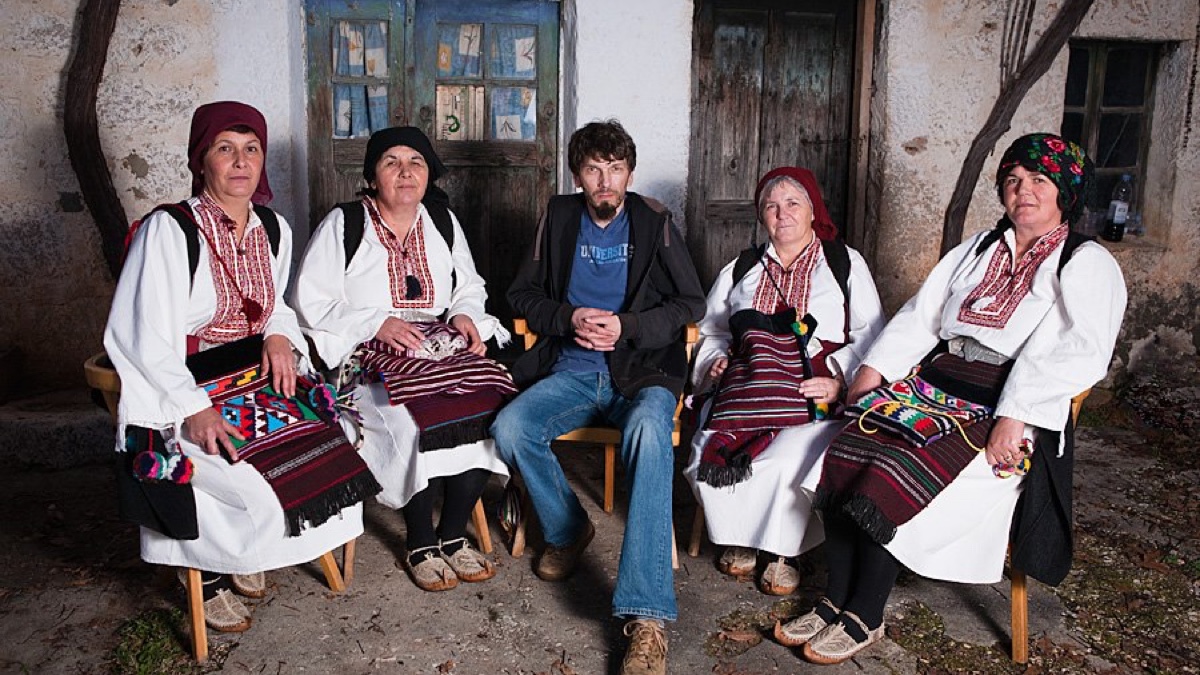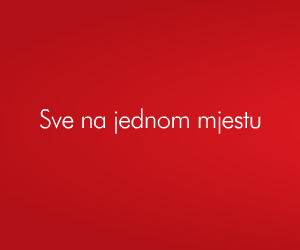
21/08/2019
Ganga is Herzegovinian blues: Blues was sung by slaves and ganga by our sufferers
The radio anchor at radio Grude Tomislav Matković* has a special greeting for his faithful listeners, mostly those that love and sing ganga song. Besides traditional music, Tomo also lives the alternative one too, and as he says he is “at the punk concert in the evening and at the radio in the morning with grannies”. The team from the production company Kadar, has put the combination of the two worlds in the "Radio Ganga" - a documentary that will premiere at the opening of the 20th edition of the Mediterranean Film Festival in Široki Brijeg. Matković says it all started back in 1999, when the old generation of ganga singers was much more active in Herzegovina than it is today.
“They called in the programme and wanted me to play ganga songs for them. Since it's some thirty second form, it was super cool to me and I played the ganga as a jingle. Then more and more listeners started calling, some ganga bands started coming to the radio, we were recording those traditional songs and that's when the click happened. I realized that this was not some moaning, but that there was something deeper in there. There is order, perfection, something primeval. The ganga itself, the shaking of the vocal cords, is protected by UNESCO, and it is a point that dates back to Illyrians. Interesting fact is that the ganga cannot be written in notes, there is no measure”, Matković said.
The team from production Company Kadar from Široki Brijeg decided to document your story. What was your reaction to this idea?
I didn’t quite understand why they should make a film for me. In the old tobacco fabric in Imotski, at the time of squatting, a pretty good alternative scene developed. They also liked the story, underground scene, punk and alternative on the one hand and ganga songs on the other. Different interests connected in one person. Therefore, this is not a story about me; I am just a link between two different worlds. I am the man that entered the two worlds and they found it interesting. In the evening at punk concert and in the morning with grannies at the radio. Two different worlds that are connected in Herzegovina. All around the world, the alternative and tradition exclude each other and it is here in Herzegovina that these two worlds, not only in my case, merge.
You said that you were lucky enough to be born as a child of “gastarbeiters” in Germany, so you didn't get the impression that ganga was primitive music. What do you say to those who state that?
I understand them. Ganga is bitter, as well as Herzegovinian men from the rock. The first impression one gets is hard and bitter. After a while, when a person opens up, you get a completely different picture. The Ganga had previously been much more disrespected, at the time when there was more intolerance towards the Herzegovinians and the people from Imotski, now it is not the same. I am lucky not to be born here, as most young people are, but I observed it from the outside. I entered the story without prejudice, from the musical and research point of view.
Could we say that ganga is labourer song? Is it wrong to compare it to Herzegovinian blues?
That’s exactly it. Because the blues is slaves’ song during the hard work and all the previous generations were working and living hard. This area has always been full of conflicts, wars; our people have always been subjected. This was only worthwhile left. Ganga sings about everything – from birth to death, friendship, love, first kisses, joys... It sings about sex, and people that are not from here, those allegedly from a higher cultural level, tell us that it’s primitivism. That’s not true. We had a different opinion about sex; it was a part of our natural process - birth, death, sex.
For years, you have been talking to Grude radio listeners in the people's style, and you have one intimate communication, through specific almost Montypython humour. Is this the key to your closeness with the listeners?
Through ganga and listeners I have discovered a different kind of humour of the people from the rock. But a specific Herzegovinian, a little quirky Monthy Python humour. Especially our words that I find interesting and try to keep. I have special greetings for listeners, there is no Mr. or Mrs. I got into the role of an older man who works in the field or sits in a bar, and that is the humour I use. Therefore the ‘story’ of Tomo. My style of humour wouldn’t be interesting anywhere else. When I hear a new word I must remember and use it, I want to preserve the old fashioned vocabulary and ikavica dialect and I use it on air.
*Text published in Večernji list


